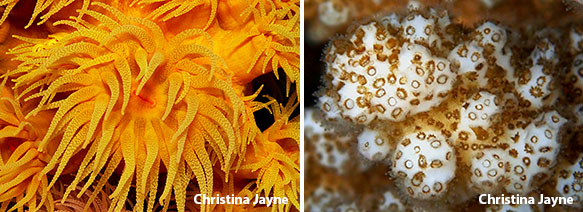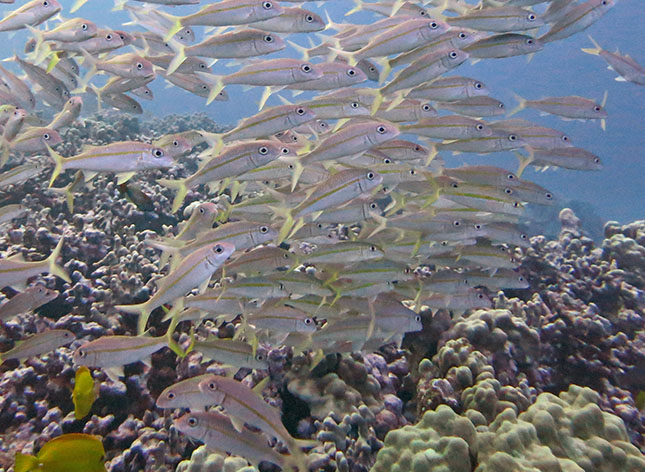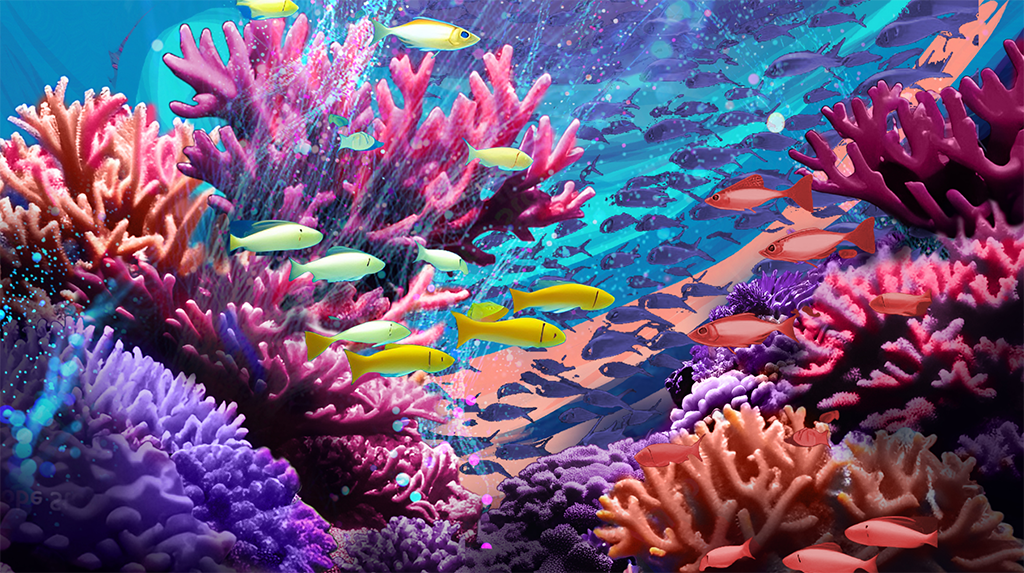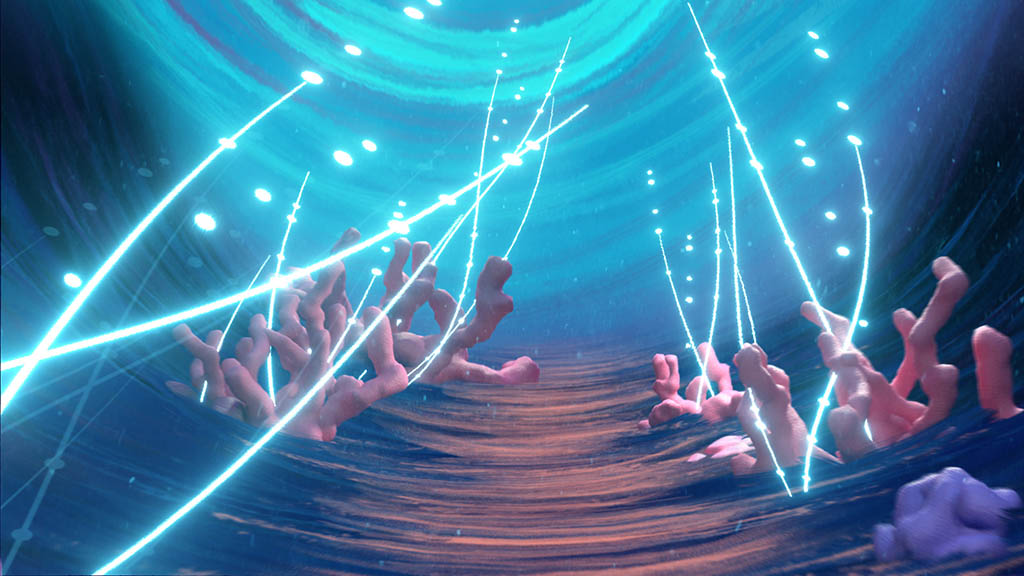Hawai‘i’s Coral Reefs

Hanau Kumulipo i ka po, he kane.
Hanau Po‘ele i ka po, he wahine.
Hanau ka ‘Uku-ko‘ako‘a, hanau kana, he ‘Ako‘ako‘a, puka.
Born was Kumulipo in the night, a male.
Born was Po‘ele in the night, a female.
Born was the coral polyp, born was the coral, came forth.

The reef gives us life
The Kumulipo, the ancient Hawaiian creation chant, tells us that the coral polyp (ko‘a) was the first living thing created. Early Hawaiians understood and deeply appreciated the critical role that coral plays in our natural environment and in sustaining the people of Hawaiʻi.

through food that we eat,
In the Kumulipo, the creation of coral was followed by other marine invertebrates (urchins, sea cucumbers, sea stars, etc.), and later fish and marine mammals. The importance of coral is reinforced as the foundation of our nearshore ecosystems, which includes providing sustenance to people.
and protection that it provides.
Coral reefs are well known for providing coastal protection from wave energy. They are natural breakwaters which reduce impacts of waves, including seismic sea waves (tsunamis) and those generated by hurricanes. But they can protect us from disease, too. Antiviral and anticancer drugs have been developed from reef organisms, and research continues to unlock other potential medical uses.
 But the reef is fragile.
But the reef is fragile.
Coral polyps are delicate animals, and reefs are among the most fragile ecosystems on the planet. Polyps surround themselves with hard calcium carbonate skeletons for protection, but a thin tissue layer spreads over the surface of coral colonies (or heads), connecting polyps to each other. This tissue layer is easily damaged by contact, which can result in infection and disease. Corals are also susceptible to bleaching, climate change, and pollution.
So we must protect it. Avoid damaging it, and use reef-safe sunscreen.
| Avoid standing on, touching, or trampling corals. |
| When snorkeling, be aware of your fins and the space around you. |
| Use sunscreen with no oxybenzone or octinoxate. |
| Anchor only in sand or rubble, or use mooring buoys. |
| Keep trash off beaches and away from streams. |
| Keep chemicals and other pollutants from entering streams and storm drains. |
Take care of the ocean, and it will take care of you.


